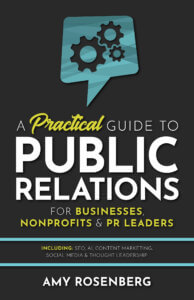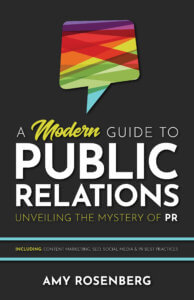In case you missed it, Sunday night at the annual Golden Globe awards, Oprah Winfrey accepted the Cecil B. DeMille Award for lifetime achievements. As the first black woman to win the award, it wasn’t just the acceptance speech that had tears streaming down faces in the audience and at home. Rather, an impactful story that she told of bravery and veracity. It was a story, speech and cultural address that everyone in the journalistic sphere can learn from. Here are a few takeaways:
1. Strive for the Absolute Truth:
Winfrey speaks of journalism as “…the insatiable dedication to uncovering the absolute truth that keeps us from turning a blind eye to corruption and injustice.” It was in this moment I realized, do journalists ever have the full story? And do we, as PR professionals, empower them to get it? We say who, what, where, when and why, but do we truly strive to communicate both sides of the story? Truth is power. We must work harder to find the truth and be self-aware; to not turn a blind eye.
2. Leave Bias at Home:
With the truth comes a story, and with that story journalists must get rid of racial, sexual, political, religious, and cultural prejudices. We write about people’s lives and our culture grows by reading about other’s lives. Tell the truth and don’t let your personal bias get in the way.
3. Let Journalism Transcend Hate:
Speaking the truth can be daunting. If we dare speak beyond barriers, we can face the unknown. By unifying our culture, we gain the realization that we are never alone. We can’t let fear control journalism. Winfrey tells the story of 1944 Recy Taylor, a young woman who was gang-raped by six armed white men, walking home from church. She was threatened to be killed if she ever spoke the truth. Regardless, her story was reported to the NAACP where Rosa Parks was the lead investigator on her case. At this time, the men were never persecuted and justice was not served because it was not an option. Yet Taylor’s story proves that the truth can transcend hate with her story being told today. “For too long, women have not been heard or believed if they dare speak the truth to the power of those men. But their time is up.”
4. Find Justice in the Story:
We need to search, listen, look, sense; do more to ensure that what we write is the truth and the voices of those who can’t be heard are brought justice. Oprah goes on to say how in her career, she strived “…to say something about how men and women really behave. To say how we experience shame, how we love and how we rage, how we fail, how we retreat, persevere and how we overcome.” By baring people’s true self, we can strive to find justice in a story.
5. Lead the Story with Empowerment:
By empowering others to speak up, supporting their stories, and being rid of fear we can make a difference in journalism. A well-known phrase is speak for those who can’t speak for themselves. But through empowerment, we can legitimize those voices to speak up so their stories are heard and our culture is more accepting. “Speaking your truth is the most powerful tool we all have.”
I was moved and inspired by Winfrey’s speech and believe that it is something we can all learn from. In this time, we need everyone to do their part to uncover, unify and encourage the truth. “A new day is on the horizon.”
Here is the complete video of her speech:
Featured image courtesy of
“My Life Through A Lens”







